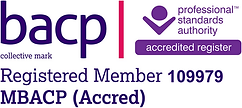Did you know that perinatal mental health issues affect a significant number of individuals during pregnancy and after childbirth? According to research, around 15-20% of women experience perinatal mood and anxiety disorders, such as postpartum depression and anxiety. Additionally, fathers and partners can also face mental health challenges during this period, with estimates suggesting that up to 10% of new fathers experience postpartum depression.
The Impact
Perinatal mental health disorders can have a profound impact on individuals and their families, affecting bonding with the baby, daily functioning, and overall well-being. However, it’s essential to know that help is available, and counselling can be a highly effective form of support.
What Works?
Counselling during the perinatal period provides a safe and non-judgmental space for individuals to explore their thoughts, feelings, and challenges. An experienced counsellor can help individuals understand their emotions, develop coping strategies, and learn valuable skills to manage stress, anxiety, or depression.
Through counselling, birth trauma, relationship changes, self-esteem concerns, and adjustment difficulties can also be addressed. Counselling sessions may involve various therapeutic approaches, including Eye Movement Desensitisation and Reprocessing (EMDR), mindfulness techniques, and psychoeducation tailored to the perinatal experience.
Moreover, counselling doesn’t just benefit individuals experiencing perinatal mental health issues but can also support partners and family members in understanding and navigating these challenges together. By fostering open communication and providing practical tools, counselling can strengthen relationships and promote a healthier family dynamic during this transformative time.
If you or someone you know is struggling with perinatal mental health concerns, reaching out to a qualified counsellor can make a significant difference. Remember, seeking help is a courageous step towards healing and well-being for both parents and their growing families.
If you would like support in the perinatal period, get in touch for more information on how counselling or EMDR can help. www.julieleetherapy.org






